Paper to Mobile Data Collection - KnK in Pakistan improves efficiency and transparency by combining the ActivityInfo mobile app and platform
Executive Summary
Kokkyo naki Kodomotachi (KnK, Children without Borders) is a humanitarian association founded in Japan in 1997 to assist underprivileged children and youths. Their activities around the globe include implementing educational programs, providing shelters and protection when necessary, as well as assisting youths’ reintegration into their families and communities.
KnK’s work in Pakistan centers around school environment development and improving access and quality of girls’ education in three districts of Khyber Pakhtunkhwa province. With the main objective of improving the literacy rate among girls in Pakistan, their project also seeks to promote community understanding of girls’ education.
In 2022, KnK in Pakistan decided to digitalize their data collection process and replace traditional pen and paper data gathering with leveraging the mobile data collection capabilities of ActivityInfo. Within only 3 months of use, the organization has witnessed remarkable improvements in both the process and the outputs of data collection.
For their local partners, the transition to the ActivityInfo mobile data collection app enables them to collect both qualitative and quantitative data without an internet connection. For M&E practitioners, the ability to review collected data in real-time allows them to follow the project’s activities on a daily basis and give informed feedback to their local partners to make responsive changes on the ground. Additionally, data collected with the ActivityInfo mobile app is immediately available in the ActivityInfo platform, which allows the M&E team to reduce time spent on the data entry process and devote their efforts to decision making.
Salma Yaqoob, M&E Program Director from KnK in Pakistan, shared with ActivityInfo her experience and insights on the use of mobile data collection with ActivityInfo for the creation of this Case Study.
KnK in Pakistan
In Pakistan, KnK actively works in the Khyber Pakhtunkhwa province, which suffers from a substantial gender disparity in education. The literacy rate among men is 70% whereas that of women is only 34%. In addition, among 2.1 million out-of-school children in Khyber Pakhtunkhwa, 66% of them are girls.
Restrictive social norms such as Purdah (a custom that isolates women from society) and a lack of parents’ understanding of education are the main barriers to girls’ access to higher education. Additionally, the need for domestic labor and the financial burden associated with poverty have led to child labor, and early marriage,thus resulting in the dropout of girls.
To bridge the gender disparity at its present rate of progress, KnK aims to promote girls’ access to secondary education. The project “Improving the Access and Quality of Girls Secondary Education in Khyber Pakhtunkhwa” sets out to build and improve the facilities of secondary schools in Abbottabad, Battagram, Torghar, and Mansehra Districts. Their project also includes providing training to teachers, introducing ICT and life skills to girl students, as well as facilitating girls’ attendance to secondary education by strengthening cooperation among communities, district education departments and provincial government.
According to the KnK Japan Activity Report 2020, KnK built seven more schools, and the total number of schools KnK has constructed in Pakistan increased to 87. An advocacy group formed together with some parents and residents in the community succeeded in getting 40% of girls who were not attending school back to elementary school, and 32% to junior high school in five villages that KnK has supported.
The need for data collection and the challenges of paper-based forms
The project in the Khyber Pakhtunkhwa province has three components, which are:
- (1): Expansion of facilities to promote girls’ secondary education.
- (2): Training for teachers and parents to improve the quality of education, utilization of ICT, and implementation of life skills education.
- (3): Advocacy activities (community and provincial level) to ensure girls’ schooling opportunities and promote secondary school enrollment.
For the construction project, data is collected on the daily activities of construction workers and the progress of the project. Regarding the training activities, information on teachers, PTC and Girl Circle Trainings, meetings, and their work at the community level is monitored and evaluated. With regards to their advocacy activities, the number of meetings between community groups with education departments and political leaders is recorded.
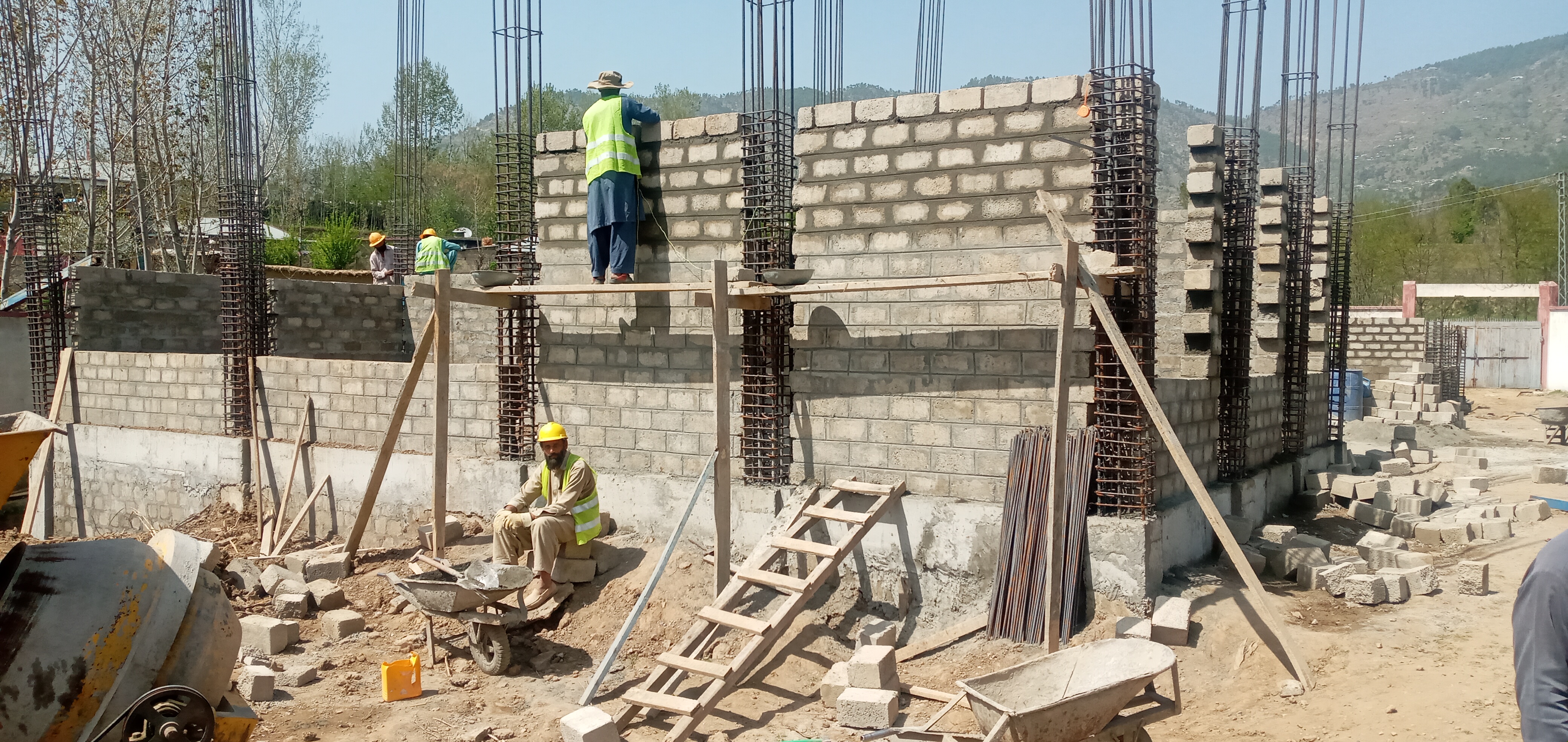
Prior to adopting ActivityInfo as part of their daily data collection routine, KnK did not have proper data collection standards and formats. The field team relied mostly on data collection forms and manually filled it. This kind of data was always prone to errors and lack of accuracy. Due to the amount of impact data they need to collect for analysis and reporting to the stakeholders, the organization realized that the traditional paper-based data collection has proven to be inefficient and prone to inaccuracy.
Improved efficiency and transparency thanks to mobile data collection with ActivityInfo
KnK in Pakistan started doing mobile data collection with ActivityInfo in January 2022. Within three months, KnK has been able to reap many benefits that mobile data collection with ActivityInfo has to offer, such as increasing the accuracy of data collection, getting quicker access to a better quality of analyzable data and enhancing program performance.
Immediate access to data
One of the main challenges faced during the use of paper-based data collection for the KnK team is how long it takes between data collection and data analysis. Entering data from the field, organizing data, and analyzing data require a significant amount of time.
Since KnK's switch from paper to mobile data collection with ActivityInfo, data is submitted in real-time and can be fed in for analysis directly. This allows M&E team members to follow the pace of data collection and monitor projects daily. Ms. Salma Yaqoob pointed out how adopting the ActivityInfo mobile app gives them more visibility on their projects:
We find it really easy to create forms and have our partners collect data using the mobile app. Our partners can immediately upload the data when they go on the field, visit a school, or conduct training. We can then follow in real-time that this training has been conducted, or how many participants were present there.”
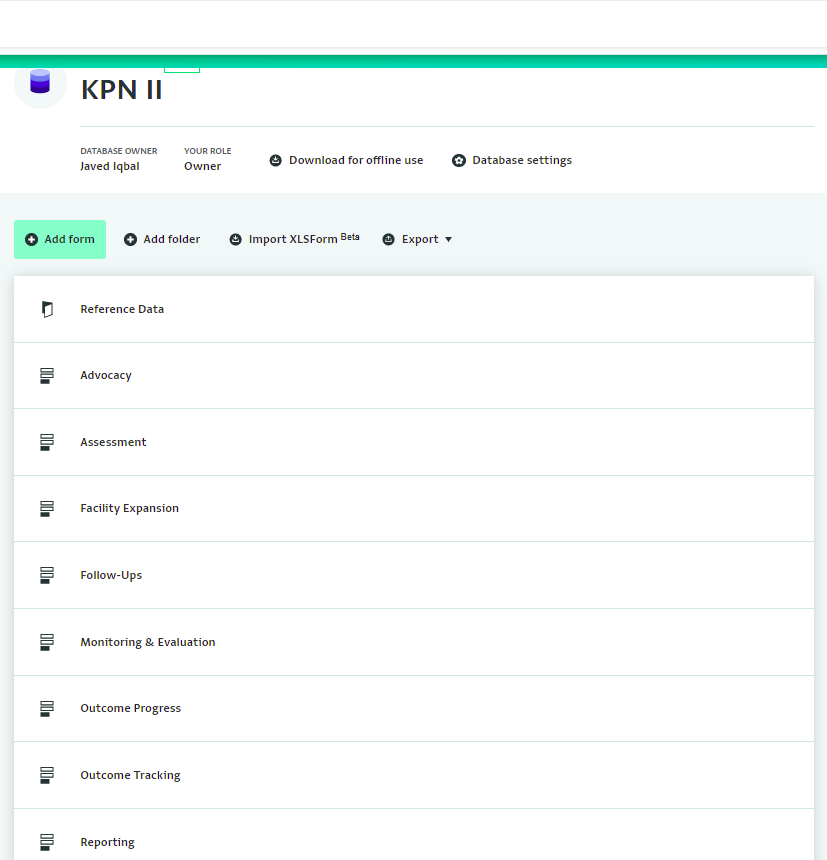
Moreover, mobile data collection with ActivityInfo does not only enable the M&E team at KnK in Pakistan to prepare donor reports in a timely manner, but also gives them the freedom to manage the projects whenever and however they wish. Ms. Salma Yaqoob further explained:
“We saw the differences while compiling the annual report. Since we are now able to collect data on a daily basis, we can see what our local partners are doing in the field. It’s good in the sense that we are not dependent on our local partners and we can follow the progress daily. We can do the analysis whenever we want, and the monitoring of daily progress enables us to make timely decisions.”
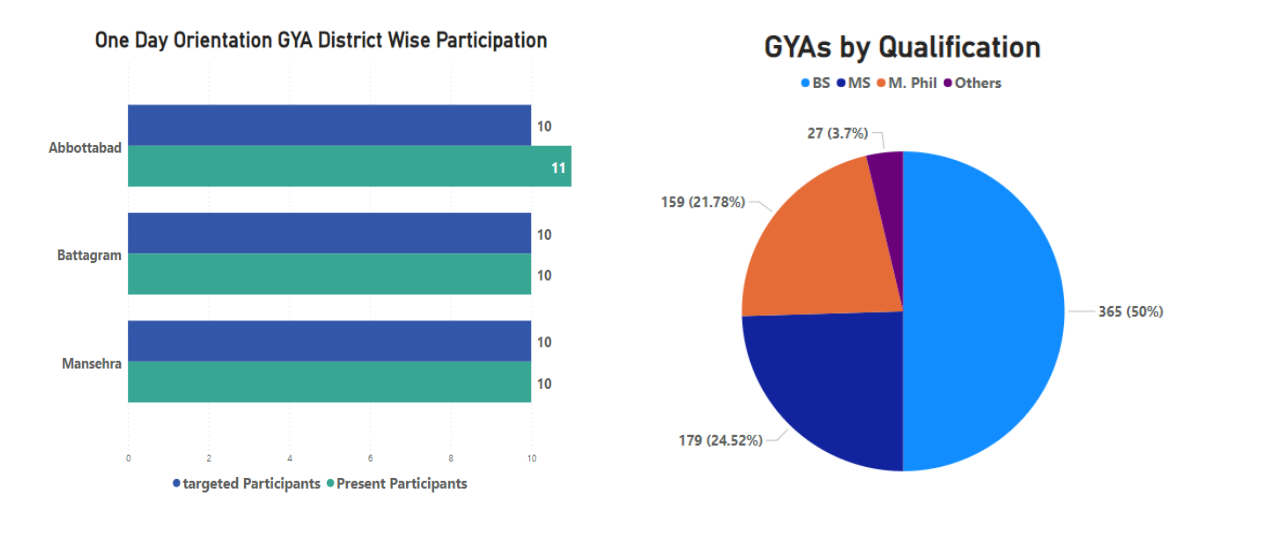
Improve accuracy and transparency
Another improvement powered by the ActivityInfo mobile data collection app is the decrease of data entry errors. Besides improving the quality of donor reporting, faster access to data also helps keep enumerators accountable. Thanks to the visibility of data in real-time, the M&E team at KnK can instantly prompt their field officers to clarify any inconsistencies or add any missing information.
“As we’re able to follow the data on a daily basis, we can see if there is something missing or something can be done in a better way. Then, we can immediately tell our local partner to make improvements.”, noted Ms. Salma Yaqoob.
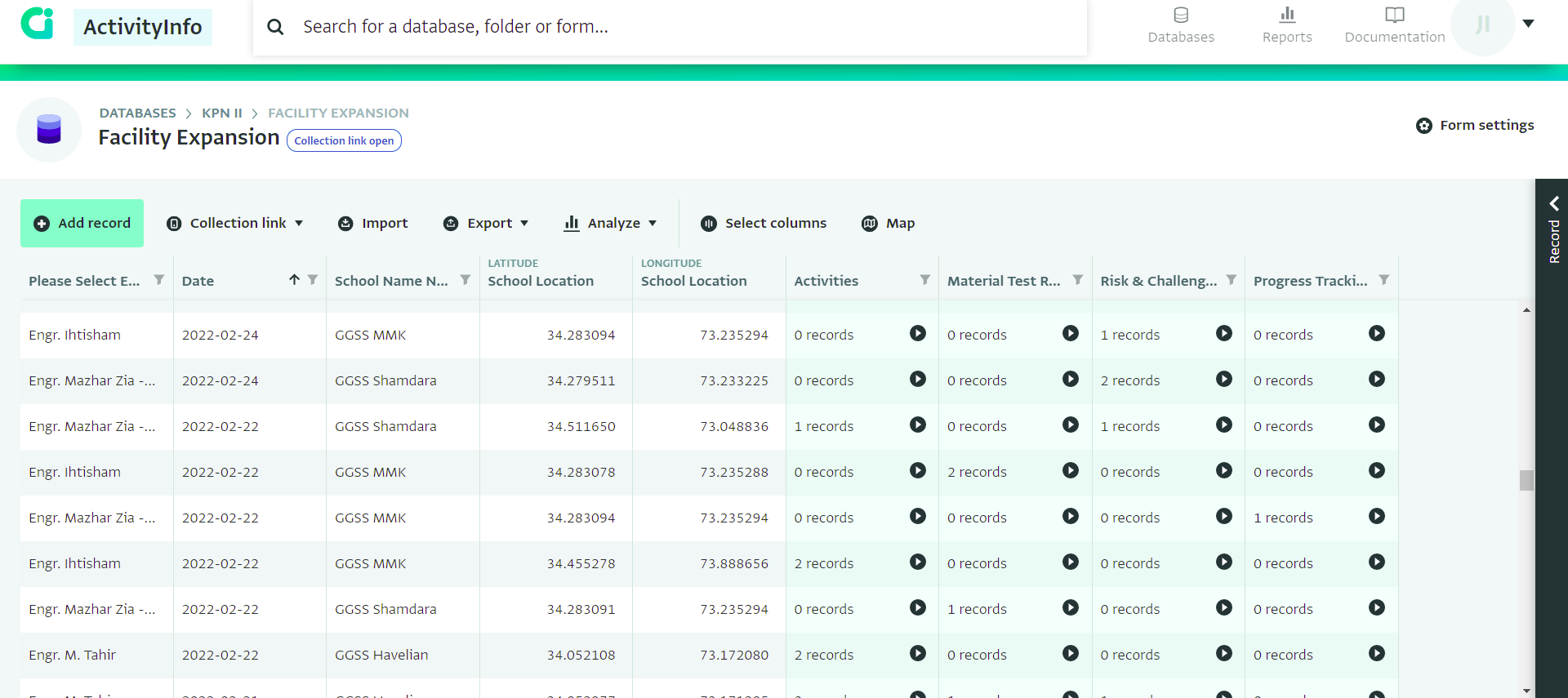
“There’s another thing about the construction part of our project. We are also processing the payment request from our partners on the basis of the project that they are entering on ActivityInfo. So once they send us a payment request, we can verify it from ActivityInfo. Therefore, it has really helped us improve transparency in funds utilization.”, explained Ms. Salma Yaqoob.

Collect field data when working offline
According to Ms. Salma Yaqoob, KnK’s field officers often face internet issues as they are working in remote and rural areas. As ActivityInfo allows for offline mobile data entry, synchronizing their data and keeping up to date is made possible even when an Internet connection is not available.
“In remote areas, we are using the offline feature from ActivityInfo and we have communicated with our local partners that they can use it. It is really helpful as they can collect data even when the mobile signals are not working properly.” stated Ms. Salma Yaqoob.
Collecting qualitative data made easy
Ms. Salma Yaqoob also brought to our attention that using the ActivityInfo mobile app also extends well to the qualitative data collection methods.
“Regarding our data collection process, ActivityInfo is very helpful in not only collecting quantitative data from the field, but also the qualitative data that we are using for our reporting. We can create forms using the multi-line text field and our partners can enter their qualitative data, the narrative of what happened in the field. Afterwards, they can come back and generate reports based on the written narratives.”
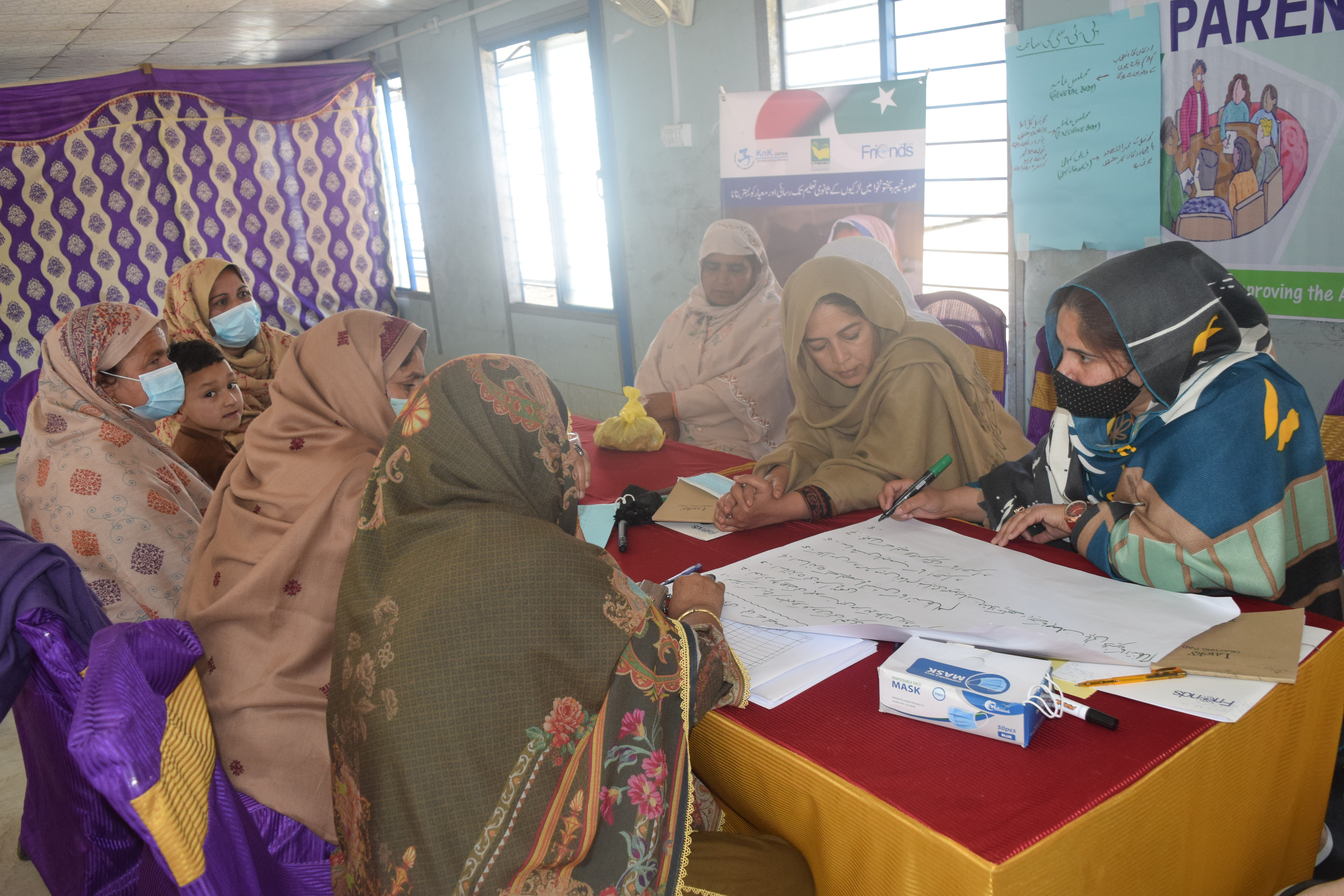
Reducing operational costs
Ultimately, switching from paper forms to digital forms in ActivityInfo eliminates the need for printing. KnK’s local partners no longer have to carry paper surveys to their data collection operation, which leads to significant savings on printing costs.
“I think it's also easy for the partners because it has greatly reduced our operational costs. You see, they don't have to spend a lot of budget on printing.” added Ms. Salma Yaqoob.
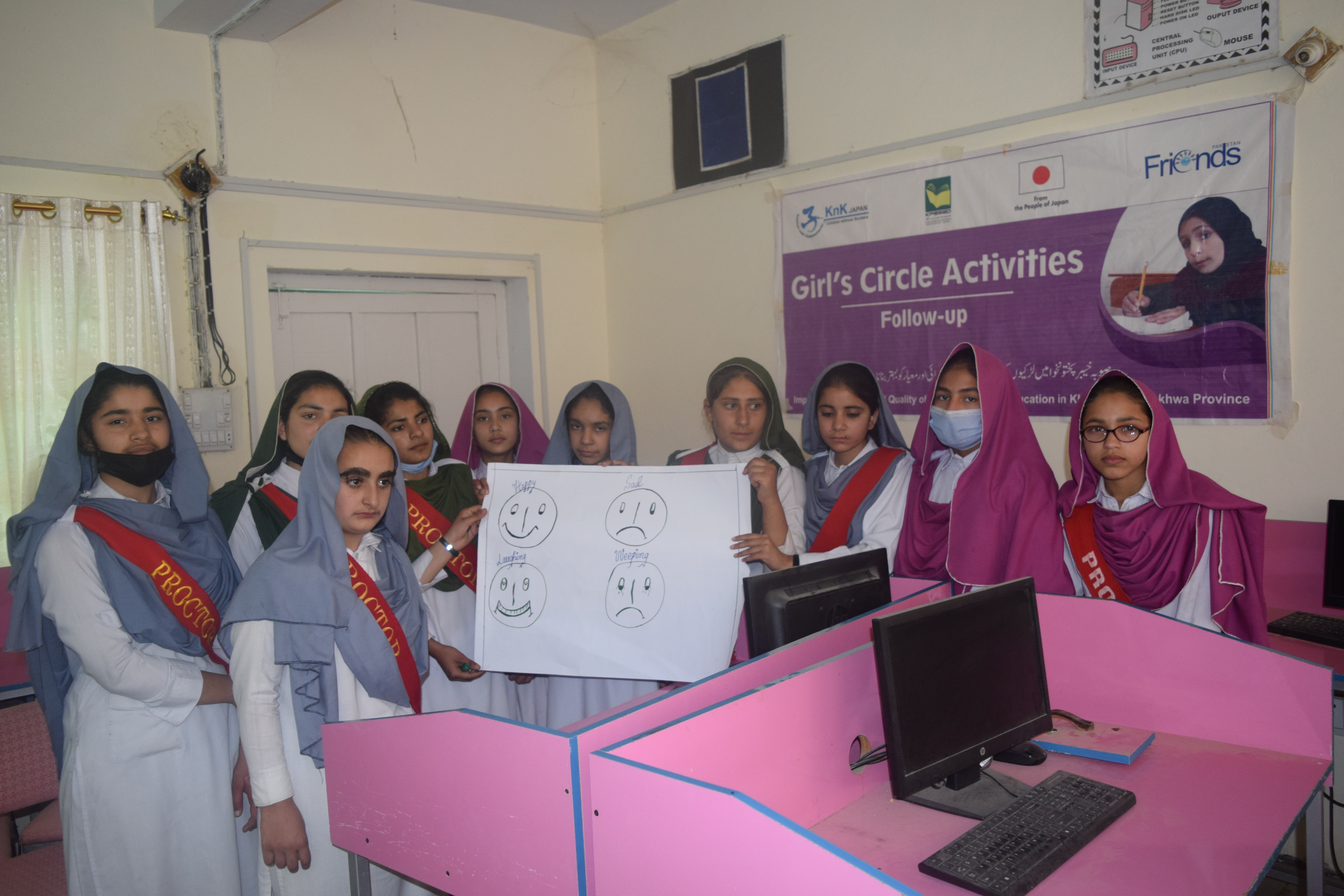
Conclusion
All in all, mobile data collection with ActivityInfo offers KnK in Pakistan quicker access to a better quality of analyzable data than the traditional paper-based data collection method. Additionally, the flexibility of the ActivityInfo mobile app enables their local partners to gather data in remote areas with slow or no Internet connection, as well as leads to significant savings on the printing costs. Most importantly, real-time data facilitates real-time decision making, allowing the M&E team to spend less time on data collection and focus on what really matters, analysis, decision-making and action regarding their humanitarian operations.
Ms. Salma Yaqoob concluded:
“We are very glad that ActivityInfo has made our work easier. In Pakistan, the M&E department is often a really small unit with one or two people working and mostly, we are busy collecting data from the field. Now, with ActivityInfo, we actually have time to look at the data, make decisions in a timely manner and improve our project.”
We would like to warmly thank Ms. Salma Yaqoob, M&E Program Director of KnK in Pakistan for providing valuable insights for the creation of this Case Study.